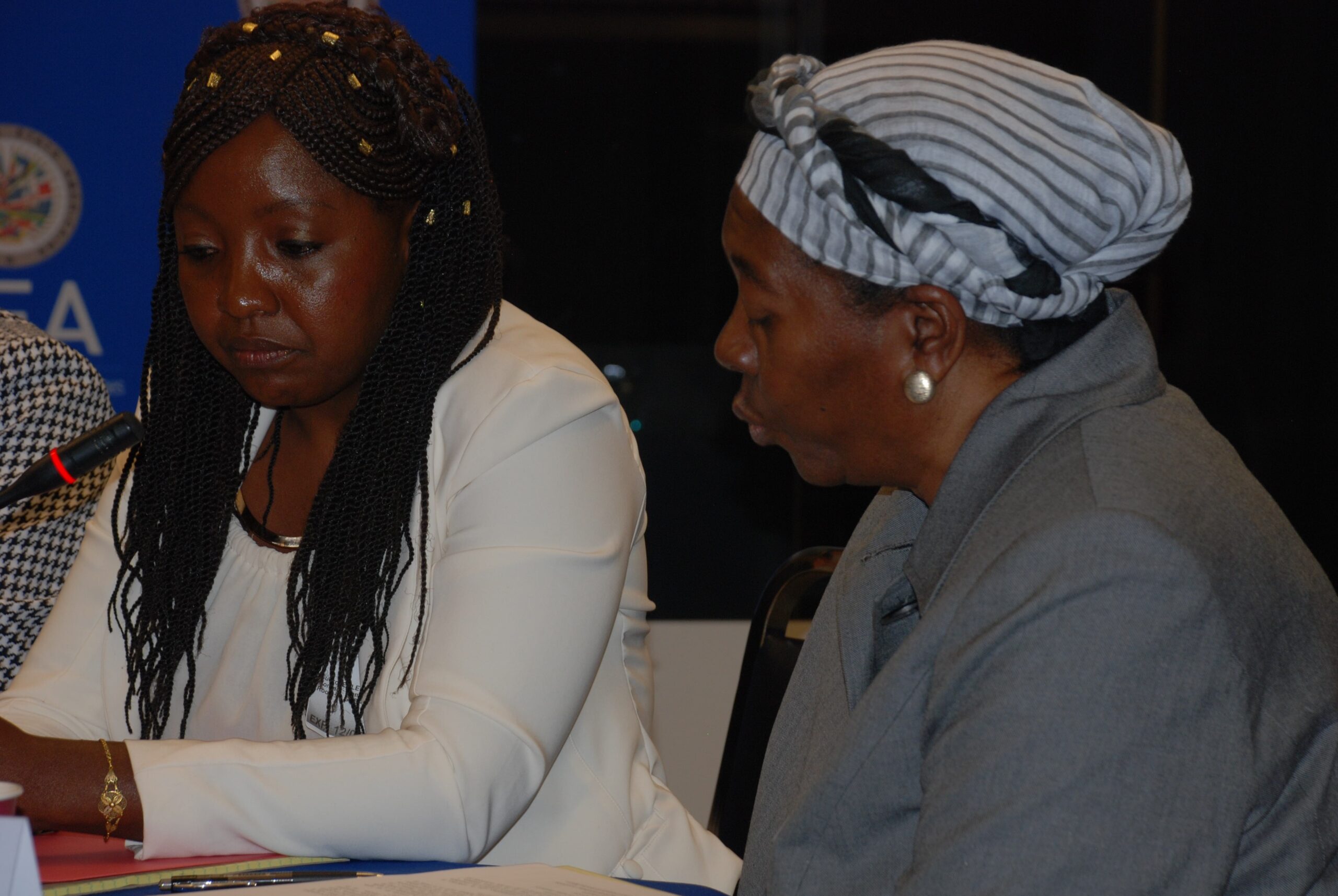The Inter-American Convention against Racism: A dialogue with experts

The murder of Afro-Colombian leaders, racial discrimination in the United States, the struggle of the Garifuna people in Honduras and the threat of extinction of the Gullah culture were some of the topics that emerged from a dialogue promoted by Race and Equality, focusing on the challenges and opportunities presented by the Inter-American Convention against Racism, Racial Discrimination and Related Intolerance and its entry into force this past November. The event was organized at the Inter-American Commission on Human Rights (IACHR) headquarters in Washington, D.C., as part of a forum sponsored by the Commission and the Inter-American Court.
The Convention has been effective for the two ratifying States, Costa Rica and Uruguay, since November 11. Representatives of these two States before the Organization of American States (OAS) joined members of civil society in a panel for the event this past Tuesday.
Among those was Erlendy Cuero Bravo of AFRODES, a distinguished organization that advocates for the rights of displaced Afro-Colombians as a result of the armed conflict. As Vice-President of the organization, Ms Cuero Bravo denounced the lack of quality education afforded to young Afro-Colombians, which often results in an increased exposure to addictive substances and, more importantly, to the loss of identity. “Our youth is ashamed of being Afro”, she said.
In addition, Ms. Cuero Bravo condemned the killings and continued persecution of Afro-Colombian community leaders. Erlendy herself is the recipient of protection measures from the Colombian government since last August after these were ordered by the IACHR eight months earlier. Despite this, her safety and that of many other leaders has not been ensured. Erlendy’s brother Bernardo was assassinated in June.
A representative of the mission of Colombia to the OAS attending the event assured that her country has the intention of ratifying the new Convention.
Another member of civil society participating in the panel was ONECA/CABO founder Mirtha Colón. The Central American Black Organization (CABO) advocates for the rights of Afro-descendant populations in Central America, from Guatemala to Panama, and includes those residing in the United States. Ms. Colón denounced the lack of commitment to defending the Garifuna communities in Honduras, citing as an example the closing of the Secretariat of Indigenous and Afro-descendant peoples.
As moderator of the event, Margarette May Macaulay, the IACHR Rapporteur on the Rights of Afro-descendants, added to the conversation affirming that some States ignore and even deny the existence of Afro-descendant citizens in their countries.
From there, the conversation discussed the crucial role that national censuses play in providing accurate information for the development of affirmative public policies. Chile and the Dominican Republic are the only countries in the entire region that do not include a racial variable in their censuses.
This invisibility has even been reflected in the identity of the region as a whole, argued Doudou Diene, a former United Nations Special Rapporteur. In emphasizing the importance that the region reflect its Amerindian and Afro-descendant origins, it will begin to revert the problem of racism that has affected it since colonial times. “By saying Latin America, we give the region the identity of its conquerors,” said Diene.
The dialogue that followed the panel included additional key talking points. A representative from Venezuela Diversa highlighted the double discrimination suffered by Black LGBTI people in his country. Carlos Quesada, Executive Director of Race and Equality, took the opportunity to announce the recent launch of the Network of Afro-descendant LGBTI of the Americas.
But discrimination can exist even in the halls of those very institutions fighting for human rights. In this sense, Commissioner Macaulay made a call for greater racial diversity among the members of the Commission and the Court. “I don’t remember ever seeing an indigenous member in these Institutions for Human Rights”, said the Commissioner, with her usual sense of irony.
The representative for Uruguay closed by warning that, since the approval of the text of the Convention against Racism by the OAS General Assembly in 2013, only two countries have ratified it to date. Faced with a global outlook which is currently unfavorable to the recognition of the rights of Afro-descendants, adopting the Convention’s legislation will depend on political will.
As Commissioner Macaulay put it: “The Convention is in full force. Now, we need to work on getting more ratifications”.

About The Author
Milli Legrain is a communications consultant for Race and Equality.


